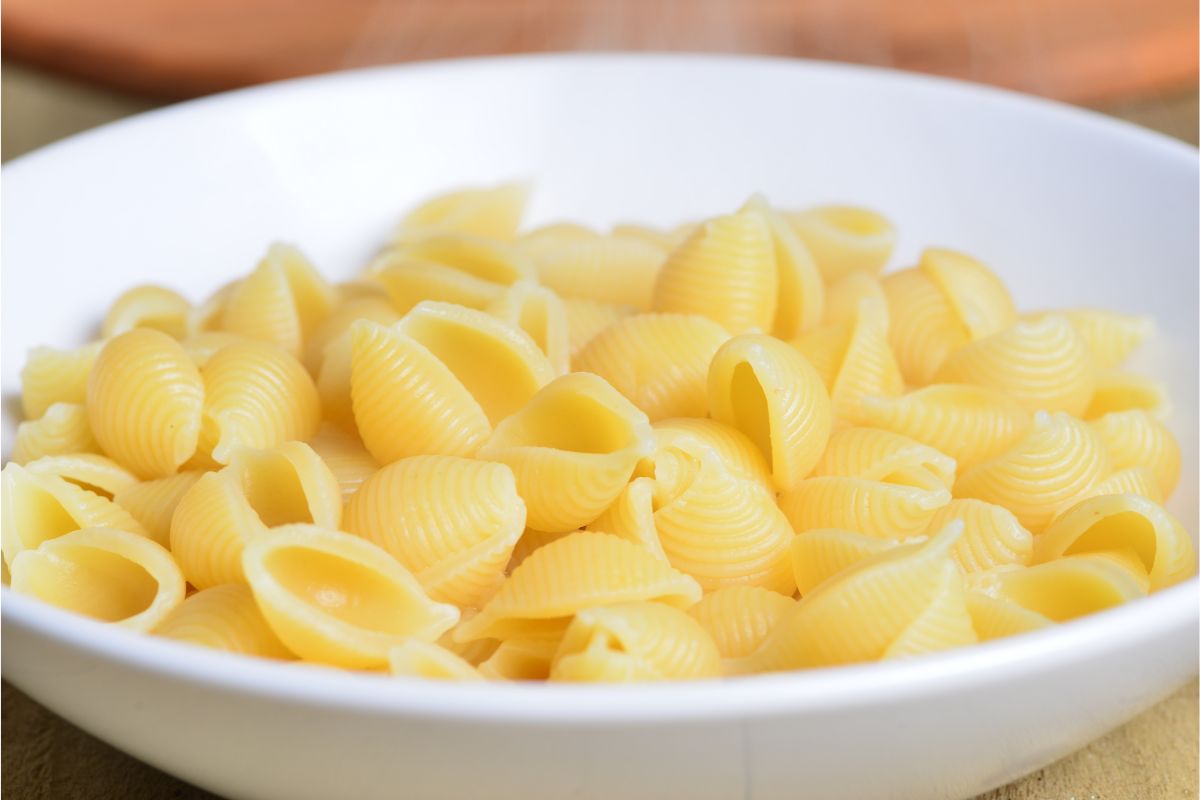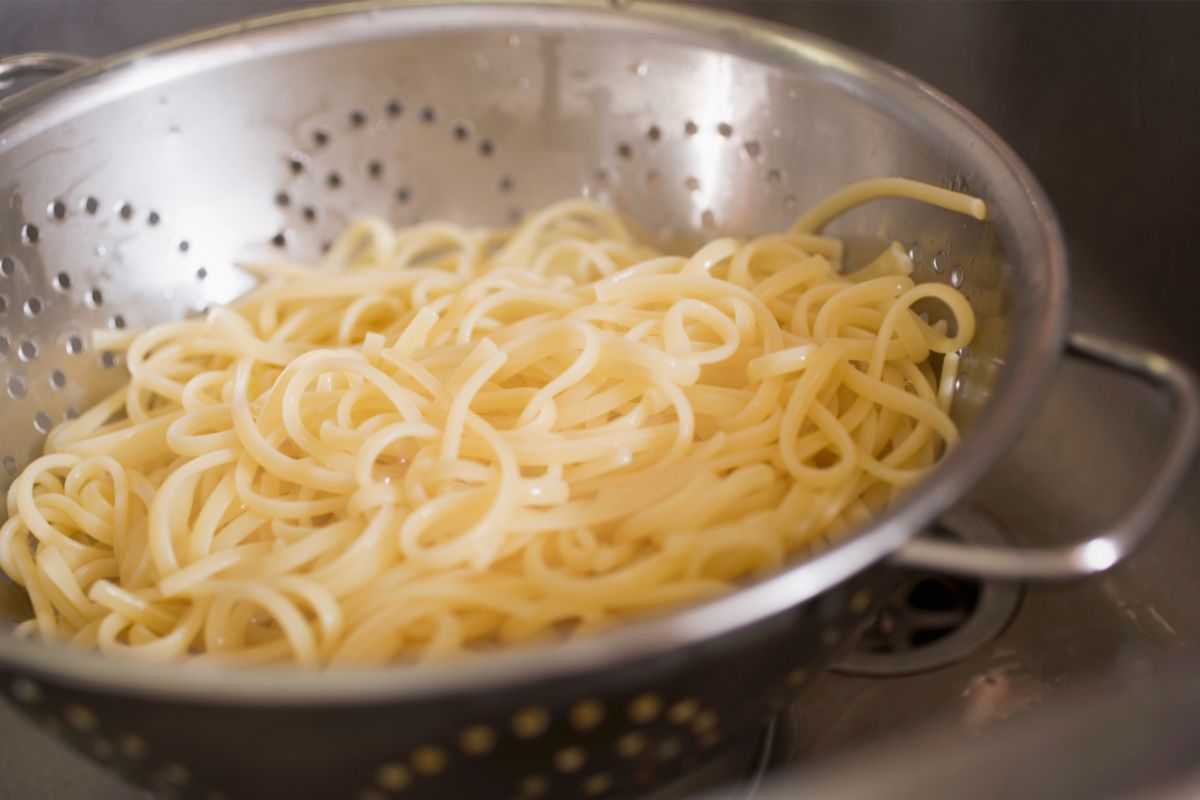Pasta is one of my favourite ever ingredients. I would happily eat it every single day and I think there’s a strong argument that I was born in Italy in a past life!
The problem with cooking pasta, just like with rice, is it can be super difficult to get the quantities right, meaning you are left with too much (although – I usually find a use for mine the next day!)

If you’ve cooked too much pasta, you may be looking for the best way to get rid of it, and wondering whether it’s possible to pop it in the compost bin.
So can you compost pasta? The quick response is a resounding yes! But, as always with composting, there are considerations to bear in mind.
I’ll talk to you about composting pasta in more detail below so you are fully clued up.
The Composting Process For Pasta
To begin with, pasta, whether it’s a plain penne or a wholemeal spaghetti, is fundamentally made from flour and water.
This classifies it as organic and biodegradable.
Composting pasta follows the general principles of composting. As an organic material, pasta decomposes over time through the action of microorganisms, fungi, and other decomposers, breaking it down into simpler elements.
This process, however, hinges on some key factors: the nature of the pasta, the balance of the compost pile, and how well the compost is managed.
In terms of the nature of the pasta, plain cooked pasta is a ‘green’ compost ingredient – high in nitrogen and quick to break down. Adding pasta to the compost bin introduces new organic material for the decomposers to work on.
However, care should be taken if the pasta has been cooked with oils or sauces. Such additives can lead to unwanted pests or odours.
For optimal composting, the ratio of ‘green’ nitrogen-rich material (like pasta) to ‘brown’ carbon-rich material (like dry leaves or newspaper) needs to be approximately 1:2.
Adding too much pasta at once can throw off this balance, leading to a wet, smelly compost pile that decomposes slower than usual. Conversely, if you’re adding pasta to your compost, ensure to counterbalance it with ‘brown’ material.
Compost management is also crucial. Turning your compost pile regularly helps introduce oxygen, which aids in breaking down the materials and prevents the formation of bad odours.
It also helps to distribute the heat generated during decomposition, further speeding up the process.
Benefits of Composting Pasta
Composting pasta has multiple benefits. First, it helps reduce food waste. By composting leftover pasta, you’re not only preventing it from ending up in a landfill but also turning it into a resource.
Secondly, the resulting compost is nutrient-rich, providing a fantastic organic fertiliser for your garden. The nutrients in pasta, especially nitrogen, are beneficial for plant growth and health.
Finally, composting pasta can help to kick-start a compost pile. High-nitrogen foods like pasta can act as ‘activators’, stimulating microbial activity and aiding the decomposition of other materials.

Challenges Of Composting Pasta
Despite the benefits, composting pasta does present certain challenges. As I mentioned earlier, pasta coated in oil or sauce can attract pests like rodents and insects, which may disrupt the composting process and create a nuisance.
Another challenge is maintaining the balance in your compost pile. Pasta, like other ‘green’ materials, is high in moisture. Too much of it can result in a compost pile that’s too wet, leading to odours and slow decomposition.
Remember that it’s important to balance pasta additions with sufficient ‘brown’ material.
Lastly, pasta, especially when cooked, can clump together in the compost bin, slowing down its decomposition. Regular turning of the compost pile can help alleviate this issue.
Other Ways To Use Leftover Pasta
I’m a big advocate for freezing leftovers. Now, I will admit that pasta doesn’t freeze as well as other foods, and I probably wouldn’t recommend freezing dry pasta (that would be better suited to your compost bin), but if the pasta is covered in a sauce, you can pop it in the freezer.
Once cooled, put your leftovers in a well-sealed container or bag, put the date on it and what the food is (we’ve all been there – fishing mysterious meals out of the depths of the freezer), and put it in the freezer for a convenient meal next time you’re too busy to cook.
Final Thoughts
We are all guilty of getting the quantities wrong when cooking pasta, so if freezing your leftovers isn’t an option, it’s good to know what else you can do.
You can put pasta in your compost bin as long as you remember to avoid putting it in with oils or sauces. Remember to not put too much pasta in the bin either as you need to maintain a delicate balance in your compost heap.
Keen to know more about composting? Take a look at my article on eggshells next.
- Can You Compost Pasta? A Quick Guide - May 9, 2023


